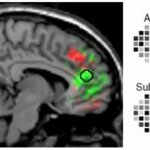
New research findings now appearing online in the Journal of Experimental Social Psychology began with a professor's desire to understand why her husband often seemed to ignore her requests for help around the house.
"My husband, while very charming in many ways, has an annoying tendency of doing exactly the opposite of what I would like him to do in many situations," said Tanya L. Chartrand, an associate professor of marketing and psychology at Duke University's Fuqua School of Business.
When Chartrand envisioned a formal academic study of people's resistance to the wishes of their partners…




